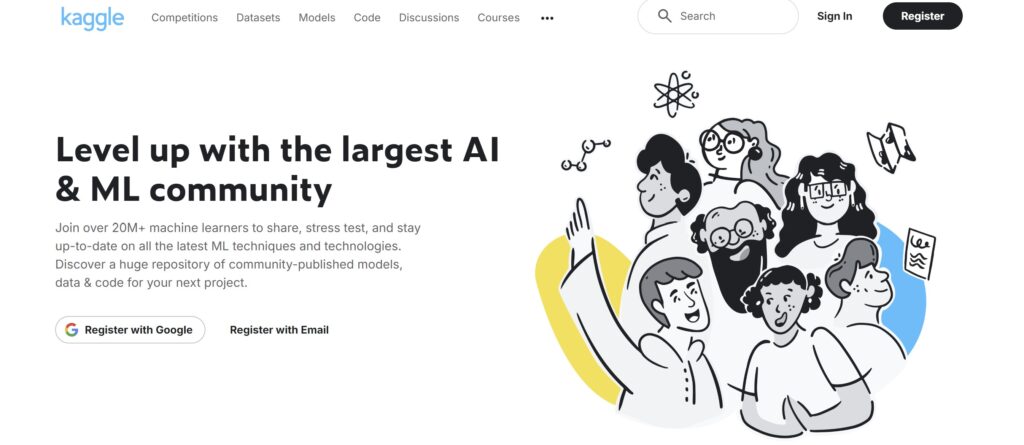For More Free Videos, Subscribe to the Rhodes Brothers YouTube Channel.
AI is changing rapidly, and its impact on our lives is becoming increasingly profound. But what if I told you that the AI we know today is on the brink of a radical transformation? A transformation so significant that it might lead to the “death” of AI as we know it. Intriguing, isn’t it?
In this post, we’ll explore the journey of AI from its humble beginnings to its current state and peer into its potential future. We’ll discuss how this evolution might affect you, your career, and the world around us. Most importantly, we’ll equip you with strategies to thrive in this rapidly changing landscape.
As John S. Rhodes of Rhodes Brothers puts it, “The death of artificial intelligence is fast approaching because it will soon, very soon, perhaps even right now, be impossible to tell the difference between human intelligence and non-human intelligence.” This statement sets the stage for a deep dive into the implications of AI’s evolution.
TL;DR
- AI has evolved from simple rule-based systems to complex language models
- The line between artificial and human intelligence is blurring rapidly
- This evolution may lead to the “death” of AI as a separate entity
- The future may bring challenges for certain professions but opportunities for creativity
- Embracing and understanding AI is crucial for future success
- Developing “soft skills” and creativity can help you stay relevant
From Rules to Patterns: The Early Days of AI
When we talk about the history of artificial intelligence, it’s fascinating to see how far we’ve come. In the early days, AI was nothing more than a set of predefined rules. As John explains, “It began as a rules-based system – if this, then that.”
Imagine a huge database filled with row after row of “if-then” statements. It was like a massive, complex decision tree. While it was a breakthrough at the time, this system was far from the sophisticated AI we know today. It was linear, lacking the intricate connections that make human intelligence so powerful.
The Shift to Pattern Matching
As technology advanced, so did our approach to AI. Researchers began to realize that they could model computers after the human brain, with its complex network of neurons and connections. This led to a significant shift in AI development.
Instead of relying solely on predefined rules, AI systems started to use pattern matching. They would analyze vast amounts of data, looking for similarities and differences. For example, to teach an AI to recognize a cat, developers would feed it thousands of cat pictures, labeling each one as “cat” or “not cat.”
This approach allowed AI to become more flexible and adaptable. It could learn from data rather than just following preset rules. However, it was still a far cry from human-like intelligence.
The Rise of Large Language Models
Today, we’re in the era of Large Language Models (LLMs). These are the powerhouses behind AI systems like ChatGPT and others. But what exactly are LLMs, and why are they such a game-changer?
LLMs are AI systems trained on massive amounts of text data. They learn to understand and generate human-like text by analyzing patterns in language. As John S. Rhodes puts it, “The key here with LLMs is having a vast amount of data. The more data, the better, and the closer to real-time that you can get, the more powerful the LLM.”
The Power of Semantics
What sets LLMs apart is their ability to understand semantics – the meaning behind words and phrases. They don’t just match patterns; they grasp context and can generate coherent, relevant responses to complex queries.
This leap in capability is what’s driving the rapid advancement of AI. It’s why we can now have conversations with AI, ask it to write essays, or even generate code. The AI isn’t just following rules or matching patterns; it’s understanding and creating in a way that’s eerily human-like.
The Blurring Line Between Human and Artificial Intelligence
As AI becomes more sophisticated, we’re approaching a point where it might be impossible to distinguish between human and artificial intelligence. This is what John S. Rhodes refers to as “the fast approaching death of AI.”
But what does this really mean? It’s not that AI is going away. Rather, it’s becoming so integrated into our world that the term “artificial” may no longer apply. AI is becoming a natural part of our environment, our tools, and even our decision-making processes.
The Turing Test and Beyond
Rhodes mentions the Turing Test, a classic measure of AI capability. The idea is simple: if a human can’t tell whether they’re interacting with a machine or a human, the AI has passed the test. But we’re moving beyond even this benchmark.
Modern AI isn’t just mimicking human responses; it’s creating, problem-solving, and even innovating in ways that can surpass human capabilities in certain areas. This is why some experts talk about the possibility of a “singularity” – a point where AI surpasses human intelligence across the board.
What This Means for You
The rapid evolution of AI has profound implications for all of us. As Rhodes points out, “You can either work with it, or I suppose you can work against it.” But working against AI doesn’t mean fighting killer robots; it means potentially being left behind as the world changes around you.
The Changing Job Landscape
One of the most significant impacts will be on the job market. Rhodes suggests that many traditional tech jobs may become less valuable as AI takes over more tasks. “Only the best of the best will be paid well,” he says, referring to fields like programming and engineering.
This doesn’t mean these fields will disappear, but it does mean that to stay competitive, you’ll need to be at the top of your game or find ways to work synergistically with AI.
The Rise of Soft Skills and Creativity
So, what skills will be valuable in this new world? Rhodes emphasizes the importance of “softening your skills.” This means focusing on areas that are uniquely human and difficult for AI to replicate:
- Creativity: Coming up with truly novel ideas and solutions.
- Philosophy: Exploring the deeper questions of existence and ethics.
- Emotional Intelligence: Understanding and managing human emotions.
- Critical Thinking: Analyzing information from multiple angles.
- Interdisciplinary Thinking: Connecting ideas across different fields.
As the famous physicist Albert Einstein once said, “Imagination is more important than knowledge. Knowledge is limited. Imagination encircles the world.” In the age of AI, this quote becomes more relevant than ever.
How to Thrive in the Age of AI
Now that we understand the landscape, how can we position ourselves to thrive? Here are some actionable steps:
- Embrace Lifelong Learning: Stay curious and always be ready to learn new skills.
- Develop Your Creative Muscles: Practice creative thinking and problem-solving regularly.
- Focus on Human Interaction: Build strong interpersonal skills and emotional intelligence.
- Understand AI: Learn how AI works and how to use it as a tool to enhance your work.
- Find Your Niche: Identify areas where human insight and creativity are irreplaceable.
Tools to Help You Adapt

Several tools can help you stay ahead in this rapidly changing landscape:
- Coursera and edX: Online platforms offering courses on AI and related fields.
- Kaggle: A platform for data science competitions and learning.
- Google’s Machine Learning Crash Course: A free resource to understand AI basics.
- Creativity tools like Mind42 or Miro: Help you brainstorm and develop innovative ideas.
- Emotional Intelligence apps like Mood Meter: Assist in developing EQ skills.
The goal isn’t to compete with AI, but to complement it. By focusing on uniquely human skills and using AI as a tool, you can position yourself for success in this new era.
Common Mistakes to Avoid
As AI continues to reshape our world, avoiding these common pitfalls is crucial for professional success and personal growth. Here are the key mistakes to watch out for, along with practical solutions:
Ignoring AI
Some professionals make the mistake of thinking AI won’t affect their industry or job. However, AI is no longer limited to tech sectors—it’s transforming everything from healthcare and finance to education and creative fields. Ignoring its growing influence can lead to missed opportunities and outdated skills.
Solution
Stay informed by subscribing to AI newsletters like The Algorithm by MIT Technology Review or AI Weekly. Enroll in online courses such as Coursera’s AI for Everyone by Andrew Ng, which offers a broad understanding of AI’s impact across industries. Attend AI-focused webinars or industry events, like the AI Summit, to stay updated on new trends and network with other professionals who are adapting AI in their work.
Overemphasizing Technical Skills
It’s easy to fall into the trap of prioritizing technical skills like coding or data analysis while neglecting soft skills. However, with AI automating many technical tasks, these “human” skills—like communication, empathy, and leadership—are becoming even more crucial for success.
Solution
Take a holistic approach to skill development. Consider enrolling in leadership or emotional intelligence courses on platforms like LinkedIn Learning or Udemy. For example, courses like Emotional Intelligence at Work or Effective Communication Skills can help you develop the soft skills needed to manage teams, communicate complex ideas, or lead projects in an AI-driven environment. In practice, this might mean leading a cross-functional team, where strong communication and emotional intelligence can bridge the gap between technical and non-technical stakeholders.
Resistance to Change
The job market is evolving quickly, largely due to AI and automation. Sticking to old ways of doing things or staying in a rigid career path can prevent you from adapting to new opportunities. Many roles that exist today will evolve, and some may disappear, as AI continues to reshape industries.
Solution
Regularly assess your skill set using tools like LinkedIn’s Skills Assessment or Skillshare. Compare your skills with the latest market demands. For instance, if you’re in marketing, you might notice a growing need for AI-driven skills like data analytics or machine learning. Explore platforms like DataCamp to learn data science, or Google’s AI for Business if you want to understand how AI can be integrated into your projects. By staying nimble and open to career pivots, such as moving from traditional marketing to digital marketing with AI tools, you’ll stay relevant in the workforce.
Not Leveraging AI Tools
AI is no longer just for data scientists or engineers—it’s a tool that can improve the efficiency and creativity of professionals in nearly every field. Failing to explore how AI can streamline your work is a missed opportunity. AI can automate repetitive tasks, provide insights from large datasets, or even assist in creative tasks like content generation.
Solution
Identify areas in your workflow where AI could help. For example, if you’re a content creator, tools like OpenAI’s ChatGPT or Jasper can assist in generating ideas or drafting content. If you work in sales or customer service, AI-powered platforms like HubSpot or Salesforce Einstein can automate lead management, customer outreach, or even predict customer behavior. Start small by integrating AI into one aspect of your process, such as using Grammarly for writing assistance or Zapier to automate repetitive tasks across apps.
Losing the Human Element
AI can efficiently handle routine tasks, but not everything should be automated. Many professionals risk relying too heavily on AI, neglecting the importance of human interaction, emotional intelligence, and personal connections. In fields like customer service, management, or healthcare, the human touch is irreplaceable.
Solution
Use AI to automate repetitive, low-value tasks—like scheduling meetings with tools like Calendly or managing emails with Superhuman—but maintain direct, human interaction for more complex or emotionally sensitive tasks. For example, if you work in customer service, use AI chatbots to handle simple queries, but ensure that human agents handle escalations or issues that require empathy. In management, use AI to track team performance, but hold regular one-on-one check-ins to foster personal communication and trust.
Underestimating the Speed of AI Advancement
AI is advancing faster than many expect. New tools, techniques, and applications are constantly being introduced, and staying stagnant can lead to your skills becoming outdated. If you don’t keep up with the latest advancements, you risk being left behind as industries evolve.
Solution
Commit to continuous learning. Set aside time each week to explore new AI tools or read about the latest advancements in your industry. Platforms like EdX, Coursera, and Udacity offer a range of AI-related courses, from beginner to advanced levels. For example, if you’re in finance, consider taking courses on AI in Finance to understand how machine learning is transforming investment strategies. Join AI-focused communities like AI Alignment Forum or Kaggle to connect with professionals who are also learning and experimenting with AI. This keeps you updated and helps you apply the latest AI techniques effectively in your field.
Fearing AI Instead of Embracing It
Many people fear that AI will replace them in the workforce, leading to a defensive or dismissive attitude toward the technology. However, seeing AI as a threat can limit your potential. Embracing AI as a tool that complements, rather than replaces, your skills opens up new opportunities for growth and innovation.
Solution
Shift your mindset by exploring AI as a collaborator. Look for ways AI can enhance your current job or skill set. For example, if you’re a designer, use AI tools like DALL·E or RunwayML to generate creative ideas or streamline the design process. If you’re in HR, use AI to analyze employee engagement data or predict hiring needs, but maintain the human element in interviews and team-building efforts. By integrating AI into your workflow, you can focus more on strategic, high-level tasks while AI handles the routine.
Statistics and Research
According to a 2023 McKinsey report, AI could automate up to 30% of work hours globally by 2030.
Frequently Asked Questions
How can I start learning about AI?
Begin with online courses on platforms like Coursera or edX. Google’s Machine Learning Crash Course is also a great free resource. Start with the basics of machine learning and gradually move to more complex topics.
Will AI replace my job?
While AI will automate certain tasks, it’s unlikely to completely replace most jobs. Instead, it will likely change the nature of work. Focus on developing skills that complement AI, such as creativity, critical thinking, and emotional intelligence.
How can I use AI in my current work?
Look for repetitive tasks in your work that could be automated. Many AI tools are available for tasks like data analysis, content creation, and customer service. Start small and gradually incorporate more AI tools as you become comfortable with them.
What industries are least likely to be affected by AI?
Industries that require high levels of human interaction, creativity, and complex decision-making are less likely to be heavily impacted. This includes fields like counseling, creative arts, and high-level strategy roles.
How can I develop my creativity?
Practice divergent thinking exercises, try new experiences, read widely across different subjects, and engage in creative hobbies. Tools like mind mapping can also help stimulate creative thinking.
What’s the difference between AI and machine learning?
AI is a broader concept of machines being able to carry out tasks in a way that we would consider “smart.” Machine learning is a subset of AI that focuses on the ability of machines to receive data and learn for themselves without being explicitly programmed.
How can I stay updated on AI developments?
Follow AI-focused news sites like AI News, attend tech conferences, join online AI communities, and follow thought leaders in the field on social media platforms.
Is it too late to start a career in AI?
It’s never too late! The field is rapidly evolving, and there’s a high demand for AI professionals. Start with the basics and gradually build your skills.
How can businesses prepare for the AI revolution?
Businesses should invest in AI education for their employees, identify areas where AI can improve efficiency, and consider how their business model might need to evolve in an AI-driven world.
What ethical concerns should we be aware of regarding AI?
Key ethical concerns include privacy issues, potential bias in AI decision-making, job displacement, and the long-term implications of highly advanced AI. It’s important to stay informed and participate in discussions about AI ethics and regulation.
Embracing the Future of Intelligence
As we’ve explored in this post, the world of AI is evolving at a breathtaking pace. The line between artificial and human intelligence is blurring, leading to what John S. Rhodes calls “the fast approaching death of AI.” But this “death” is really a transformation – a shift towards a world where intelligence, whether human or artificial, is simply a part of our everyday environment.
This future brings both challenges and opportunities. While some traditional roles may become less valuable, new avenues for human creativity and innovation are opening up. The key is to adapt, to embrace this change, and to focus on developing the uniquely human skills that will complement, rather than compete with, artificial intelligence.
Rhodes emphasizes, “You can either work with it or… work against it.” Working with AI means understanding it, leveraging it as a tool, and focusing on the areas where human insight and creativity are irreplaceable.
So, take that first step today. Start learning about AI, practice your creative thinking, or explore how AI tools could enhance your current work. The future of intelligence is here, and you have the power to shape your place in it.
For more insights and information to help you succeed in this rapidly changing world, we encourage you to view and subscribe to the Rhodes Brothers YouTube Channel . Stay curious, stay adaptable, and embrace the exciting future ahead!
Resource List
Books
- “Life 3.0: Being Human in the Age of Artificial Intelligence” by Max Tegmark
- “AI Superpowers: China, Silicon Valley, and the New World Order” by Kai-Fu Lee
- “Human + Machine: Reimagining Work in the Age of AI” by Paul R. Daugherty and H. James Wilson
- “The Creativity Code: Art and Innovation in the Age of AI” by Marcus du Sautoy
- “Artificial Intelligence: A Modern Approach” by Stuart Russell and Peter Norvig
Courses
- “AI For Everyone” on Coursera by Andrew Ng
- “Introduction to Artificial Intelligence” on edX by Columbia University
- “Elements of AI” – a free online course by the University of Helsinki
- “Machine Learning” by Stanford University on Coursera
- “Deep Learning Specialization” on Coursera by Andrew Ng
Podcasts
- “The AI Podcast” by NVIDIA
- “Data Skeptic” by Kyle Polich
- “Talking Machines” by Katherine Gorman and Neil Lawrence
- “The TWIML AI Podcast” by Sam Charrington
Tools
- TensorFlow – open-source platform for machine learning
- PyTorch – open-source machine learning library
- IBM Watson – AI platform for business
- Google Cloud AI – suite of machine learning tools
- OpenAI Gym – toolkit for developing and comparing reinforcement learning algorithms
- Keras – high-level neural networks API
- Scikit-learn – machine learning library for Python
- H2O.ai – open-source machine learning platform
- KNIME – open-source data analytics platform
Blogs and Websites
- Google AI Blog
- DeepMind Blog
- MIT Technology Review – Artificial Intelligence
- AI Trends
- KDnuggets
- Towards Data Science on Medium
- AI Weekly Newsletter
- Distill.pub – Machine Learning Research
- Berkeley Artificial Intelligence Research (BAIR) Blog
Conferences and Events
- NeurIPS (Conference on Neural Information Processing Systems)
- ICML (International Conference on Machine Learning)
- AAAI Conference on Artificial Intelligence
- AI World Conference & Expo
- World Summit AI
Online Communities
- Reddit’s r/artificial and r/MachineLearning
- AI Stack Exchange
- Kaggle Competitions
- GitHub AI Projects
These resources cover a wide range of topics and skill levels, from beginner to advanced. They can help you stay informed about AI developments, learn new skills, and connect with others in the field. Remember, the world of AI is constantly evolving, so staying curious and continuing to learn is key to success in this exciting field.





